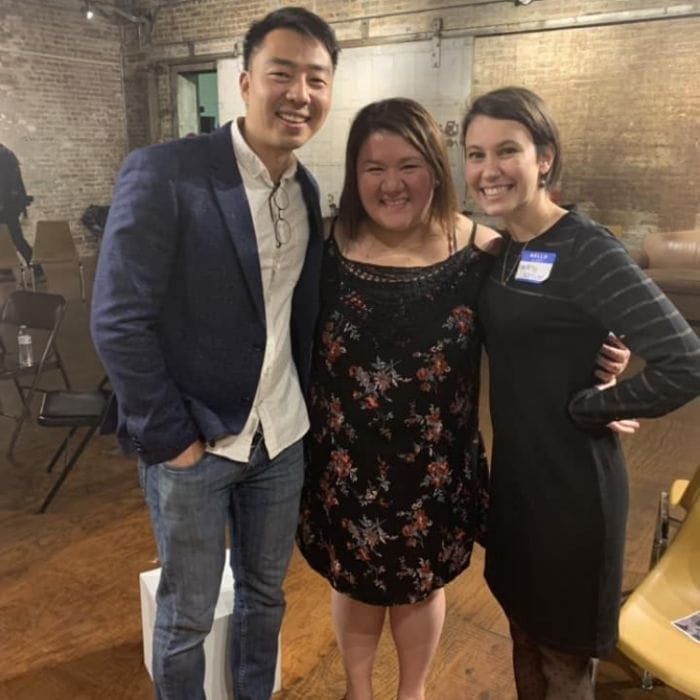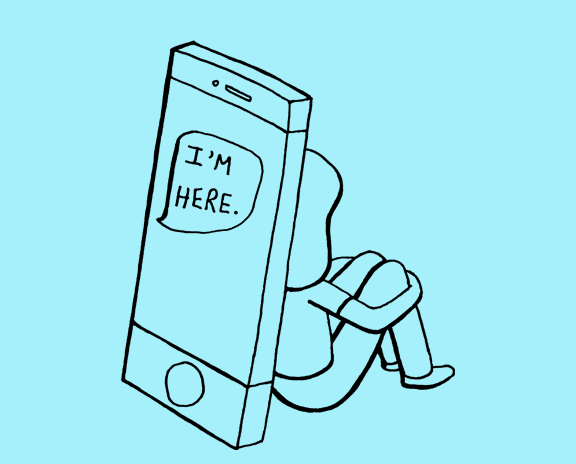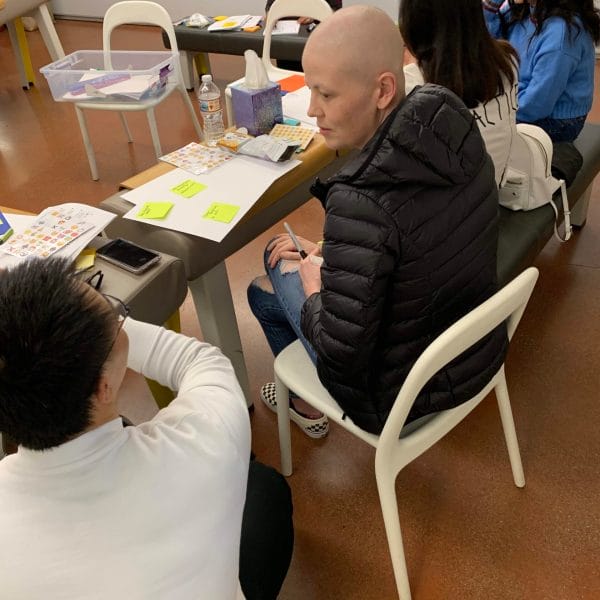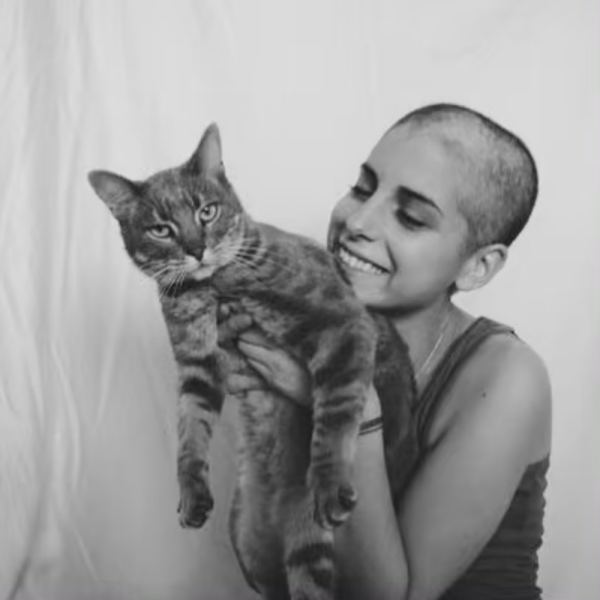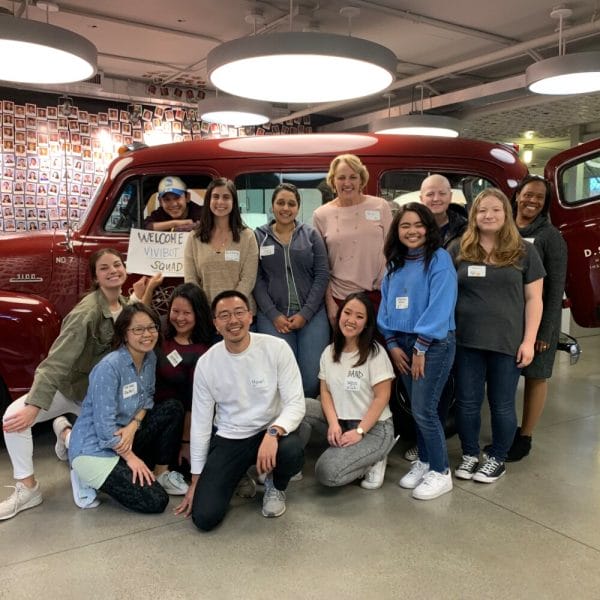Who Knew A Bot Could Create Such A Vibrant Community
As 2018 comes to a close, I wanted to share some reflections on my first months as project lead for Vivibot. When I first heard about the idea of a chatbot for AYA cancer survivors, I was skeptical. My past experiences as a middle school teacher, healthcare provider, and son of a breast cancer survivor taught me the importance and need for human connection in the healing process. How a chatbot could accomplish all of this was unclear to me. Today, however, I am sincerely and proudly optimistic about the role that Vivibot can play in the lives of AYA survivors.
One Strong Community
Below is a picture of me with Mallory Casperson and Aerial Donovan at Lacuna Loft’s first annual gala. Lacuna Loft is a Bay Area AYA cancer survivor nonprofit that runs national support programs. Mallory is the founder and CEO and Aerial is a board member, and also, Director of Programs for Gryt, the company that makes the Stupid Cancer App. Both are not only cancer survivors but were also caregivers to parents who battled cancer. On top of this, both are wicked smart. Mallory has a Masters of Science in aerospace engineering and worked for NASA prior to turning full time to Lacuna Loft, and Aerial has a sports medicine and health care background. Mallory and Aerial’s lives changed drastically after their diagnoses and their lives remain different as a result, but as Aerial told me, “I am exactly where I need to be.” By that, she means supporting other AYA survivors, organizations like Lacuna Loft, and the work we do through Vivibot. Both of these women are essential to building Hopelab’s knowledge and awareness of the AYA cancer space. The Vivibot team is so grateful for their time and effort in partnering with us to connect us to survivors and advocacy organizations. Because of people like them and organizations like Gryt and Lacuna Loft, we now have a platform to get real-time feedback from young survivors.
Vivibot Means A Lot To People
I met Mary and her husband, a retired Navy corpsman, in October. Mary was diagnosed with breast cancer four years ago. Her husband, an Information Systems Technician in the Navy, was deployed for long portions during this time. With no immediate family or nearby help, she had to take care of three young children by herself while receiving treatment. Mary specifically sought me out to tell me how much Vivibot has impacted her life. She told me, “Vivi is going to be mad at me tonight. I’m missing our 8 PM chat.”
Mary chats with Vivibot every night because she can talk to Vivibot about things no one asks her about and about things that she doesn’t want to talk to anyone else about…including her husband (and he agreed). Her story is too intricate to completely capture here, but just knowing there are people like Mary out there who have found a supportive friend in Vivibot inspire me to work hard at making Vivibot even better. Mary and her family have relocated to Chicago to complete treatment, and she’s back at work as a Montessori school teacher (a goal Vivibot helped her develop and complete) while her husband has swapped military duty for full-time dad duty.
Vivibot Is Part Of Something Bigger
Having spoken to countless AYA survivors, advocacy organizations, and survivorship clinics, I’ve realized there are two unique ways in which Vivibot can have a major impact. First, Vivibot allows us to provide non-judgemental support to those who are socially and physically isolated. I would venture to say that this is the vast majority of the AYA survivor population, which we know is difficult to reach. Second, Vivibot can be a bridge to both individual personal development and human connection. This is a tool that helps groups, clinics, and caregivers support young survivors to safely and privately begin to process emotions and develop the personal wellness skill set needed to move forward in their cancer journey. It is a tool that can and should be used in conjunction with support groups and therapy approaches to reinforce learnings. And it is a tool that can be used after an intervention to be another point of connection and check-in. We are eager to continue exploring each of these possibilities in the new year.
With all that said, it is an absolute honor and thrill to lead Vivibot into the coming year. From the entire Vivibot team and our extended Hopelab family, thank you to everyone who is on this journey with us. Happy holidays and stay tuned for more in 2019!

